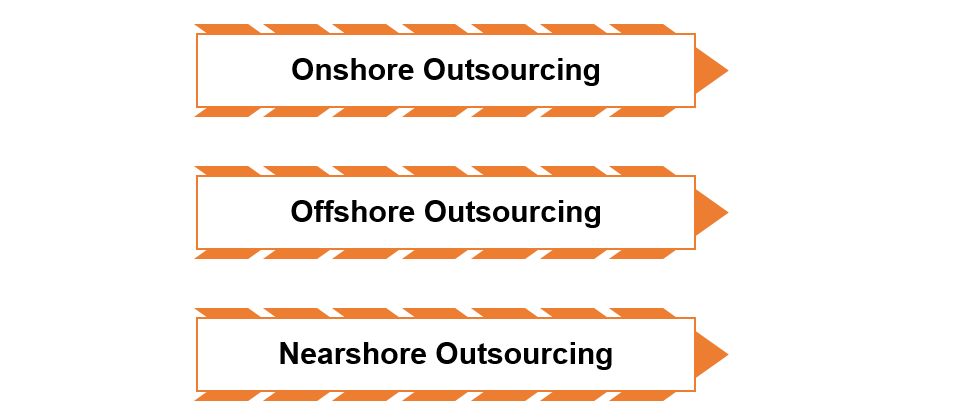Important things to be considered before drafting a Service Outsourcing Contract
- June 9, 2021
- Agreement Drafting
To contract out everything to a third party like from Housekeeping to Internet Security is coined as ‘Outsourcing’. Outsourcing various activities let companies concentrate on its core functions. It can actually save company’s valuable time and hence company can handle its important operations effectively. Many types of tasks can be outsourced like customer services, activities related to human resource, etc. which are usually non-core in nature. They may outsource such departments either fully or partially. Outsourcing can also be said as ‘Outside resourcing’, In other words, it is a process in which one company hires another company or individual to perform certain task or to provide services which was previously done by its own employees.
What are the different types of Outsourcing?
These outsourcing are basically depending upon the location. There are three main types of outsourcing such as:

- Onshore Outsourcing– It is a type of outsourcing where Outsourcing company is located in one’s own country. It is also known as Local Outsourcing. The benefit of such outsourcing is such that it avoids communication difficulty since the language and culture of both the companies are same.
- Offshore Outsourcing– It is a type of outsourcing where Outsourcing service provider is located outside the country. The demerit of this type of outsourcing is that it endures communication difficulties due to difference in culture and languages.
- Nearshore Outsourcing– It is a type of outsourcing where Outsourcing company is located in bordering regions and localities. These are the countries which are mostly located in same time zone. Therefore, it suffers less language and cultural difficulties as compared to Offshore Outsourcing.
What is an Outsourcing contact?
In simple words, ‘Outsourcing contract’ is an arrangement between two parties who are getting into outsourcing project. It is basically a legal document which contains every minute details regarding type of work to be performed by third party, terms and conditions related to it, timelines, pricing and payment terms and many more. It is a legal contract which binds both the parties.

What are the different types of outsourcing contracts?
There are various common types of Outsourcing contracts entered into between the Company and Outsourcing provider. Some of which are described hereunder:

- Time and Material Outsourcing Contract– It is a well-accepted and oldest outsourcing model. This type of contract is a long-term contract and it is made when estimation of costs and time cannot be made in advance as the project is too innovative to make advance estimations. When a project not only requires flexibility but also when a company desires control in its hands too, such contract is preferred.
- Fixed Price Outsourcing Contract– It is a kind of managed project and requirements of the company and estimated costs are already mentioned in the ‘Request for Proposal’ which is created by the company itself and the Outsourcing Company places a bid on such proposal. This model is preferrable when Flexibility is not the requirement and also when the project is simple and does not require much changes after its completion. It also minimizes the control of the Company in the project.
- Dedicated Team Outsourcing Contract– In this type of a contract, a dedicated team is hired for Outsourcing. These are specialized team of experts. This model is preferable when project is complex and requires modifications. It also requires long term relationships with the team. Company shall also have the power to control off shore teams.
What are the different governing laws and Legal Compliance for outsourcing?
Our Country has the choice to choose that which law will govern the outsourcing contracts. Therefore, the outsourcing in India is govern by various Acts such as:
- Foreign Exchange Regulations
- Foreign Trade Act, 1992
- Information Technology Act, 2000
- Indian Contract Act, 1872
- Specific Relief Act, 1963
- Laws related to Intellectual Property
- Companies Act, 2013
- Competition Act, 2000
- Income Tax Act, 1961
- Indian Evidence Act, 1872
- Labour Laws
- Transfer of Property Act, 1882
What are the most common outsourced jobs or services?
These days, most common way to do a business is outsourcing. However, every department of business cannot or should not be outsourced. Only some parts of work are better suited for outsourcing than others. The most common outsourced jobs are described below:
- Manufacturing- Various companies outsource their manufacturing job because they do not have required equipment to manufacture and hence, they can have a large number of products produced in a timely and cost-effective manner.
- Customer service- To recruit a staff for a call center is quite expensive and time-consuming process. Outsourcing this kind of a service saves lots of time, money and efforts,
- Information Technology- Several companies outsource this task to monitor and manage their technology. To hire such a service provider will prove a boon to the company.
- Creation of Content- Creation of all the content for a company is very time-consuming task and it requires knowledge of an expert also. Outsourcing helps a company to create a content in a cost-effective manner and in no or very less time.
- Human Resource- A company cannot manage its operations without human resource department and it is almost impossible for a company to staff full department. Through outsourcing, HR requirement can be easily met by the companies very effectively.
What are the components that are required to be included in a Service Outsourcing Contracts?
The most important part of the Outsourcing contract are its components that are required to be mentioned in such outsourcing contract. The main components of service outsourcing contracts are as follows:
- Detailed scope of project– Detailed project scope describes what are the service requirements of the company at its end. The company can also include ‘Request for proposal’ in this part of contract along with the response of outsourcing company. The scope shall be clear and precise so that it can be easily understandable by the Outsourcing company.
- Service Agreements– This is also known as benchmarks. These agreements are used for acquiring service guarantee from the outsourcing company for the quality of service that it is going to offer. In this agreement, company can also include penal provisions if outsourcing company does not meet the requirements.
- Transfer of assets– Various assets such as telecommunication equipment, computer hardware, etc. are required to be transferred which may attract some kind of taxes and stamp duty also. The service contract must be comprehensive of all such costs.
- Warranty for the project– There are various risk and uncertainties associated with the outsourcing. One needs to always prepare for the worst and hence service contract must have the clause of compensation and ways of recovery to avoid any legal litigation and heavy expenses.
- Cost and payment structure– In an Outsourcing contract payment structure, mode of payment should be clearly mentioned. Along with it, the time intervals in which such payments need to be given to the service provider must also be mentioned. This part of contract should also contain the clause of re-negotiation of costs in accordance with change in market with the passage of time.
- Duration of completion– The duration for which such contract would exist should be clearly mentioned in the contract. A long-term contract should not be signed by the company initially rather it should sign small contract and extend it accordingly.
- Dispute Resolution part– The chances of arising disputes between the parties also exists. To resolve such dispute, an Arbitrator should be appointed to resolve such dispute if arises in future.
- Indemnification clause– The Outsourcing contracts have many legal issues. This clause ensures that any neglect on the part of service provider shall be borne by him only. It will save the company from having any extra cost during or after the project.
- Exit Strategy– This is the most important component of the service contract that how the outsourcing relation will be terminated. There are certain things which needs to be very clear between both the parties i.e., which assets will be given back and which one will be retain by the company itself and how much time it will take.
The Final Say
Outsourcing is basically a coordination between the parties who are comfortable and decides to work on such terms and conditions which are agreed upon by the parties. Due care and attention should be given while choosing outsourcing company as this is the major decision of the company which will have the long-lasting impact on the brand and goodwill of the company. In depth research must be done before entering into any outsourcing agreement is the only key to successful agreement.
Reach out to Legal Window for all your drafting and legal related services or you can simply drop an email at admin@legalwindow.in
Neelansh Gupta is a dedicated Lawyer and professional having flair for reading & writing to keep himself updated with the latest economical developments. In a short span of 2 years as a professional he has worked on projects related to Drafting, IPR & Corporate laws which have given him diversity in work and a chance to blend his subject knowledge with its real time implementation, thus enhancing his skills.
Categories
- Agreement Drafting (23)
- Annual Compliance (11)
- Change in Business (36)
- Company Law (148)
- Compliance (89)
- Digital Banking (3)
- Drug License (3)
- FEMA (17)
- Finance Company (42)
- Foreign Taxation (6)
- FSSAI License/Registration (14)
- GST (118)
- Hallmark Registration (1)
- Income Tax (199)
- Latest News (34)
- Miscellaneous (164)
- NBFC Registration (8)
- NGO (14)
- SEBI Registration (6)
- Section 8 Company (7)
- Start and manage a business (20)
- Startup/ Registration (127)
- Trademark Registration/IPR (40)
Recent Posts
- Farmer Producer Companies-Major provisions under Companies Act April 26, 2024
- Detailed Analysis of Section 179 of the Companies Act, 2013 April 24, 2024
- Maximise Your Tax Savings: Power of Form 12BB April 23, 2024
About us
LegalWindow.in is a professional technology driven platform of multidisciplined experts like CA/CS/Lawyers spanning with an aim to provide concrete solution to individuals, start-ups and other business organisation by maximising their growth at an affordable cost.







